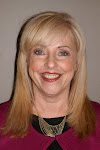My neighbor came over today with a problem that I could not solve.
She is trying to decide what dietary supplement she should use. She clutched in her hand a sheet with lists of products that she was investigating. She was frustrated.
"This is a big story," she agitated. "Who knows what's good and what's not?"
Good question.
First of all, if one is considering taking any kind of supplement, one should do a lot of research, or talk to a dietitian, nutritionist or your doctor. There are plenty of all of those to be found. Whether or not they can be trusted is another post altogether.
Consider this statement on the front of an FDA website about dietary supplements:
FDA, as well as health professionals and their organizations, receive many inquiries each year from consumers seeking health-related information, especially about dietary supplements. Clearly, people choosing to supplement their diets with herbals, vitamins, minerals, or other substances want to know more about the products they choose so that they can make informed decisions about them. The choice to use a dietary supplement can be a wise decision that provides health benefits. However, under certain circumstances, these products may be unnecessary for good health or they may even create unexpected risks.
Second, one should consider that not everything on the Internet is necessarily accurate, or true. And because dietary supplements are not regulated by the FDA, you should be cautious about claims made by manufacturers of these supplements.
By law (DSHEA), the manufacturer is responsible for ensuring that its dietary supplement products are safe before they are marketed. Unlike drug products that must be proven safe and effective for their intended use before marketing, there are no provisions in the law for FDA to "approve" dietary supplements for safety or effectiveness before they reach the consumer. Also unlike drug products, manufacturers and distributors of dietary supplements are not currently required by law to record, investigate or forward to FDA any reports they receive of injuries or illnesses that may be related to the use of their products. Under DSHEA, once the product is marketed, FDA has the responsibility for showing that a dietary supplement is "unsafe," before it can take action to restrict the product's use or removal from the marketplace. (Source: Overview of Dietary Supplements, FDA)
Take for example this site, ConsumerLab.com. It sounds very impressive - but is it? I located an "About Us" button on the bottom of the page, which sent off alarm bells. Why is the button at the bottom of the page? I clicked the button and found this information, at the bottom of the page:
KEY MANAGEMENT:
Tod Cooperman, M.D., President Dr. Tod Cooperman is a noted researcher, writer, and speaker on consumer healthcare issues. Dr. Cooperman is also the Founder of PharmacyChecker.com (http://www.pharmacychecker.com/), an evaluator of Internet pharmacies, and CareData Reports, Inc., a leading independent evaluator of consumer satisfaction with managed care (now a division of J.D. Power and Associates). Dr. Cooperman is a graduate of the Boston University School of Medicine.
William R. Obermeyer, Ph.D., Vice President for Research Dr. William Obermeyer joined ConsumerLab.com from the U.S. FDA (Food and Drug Administration) where he was a Natural Products Chemist guiding research activities of various natural products and educating the public, academia and industry on the safety and proper manufacture and testing of dietary supplements. Dr. Obermeyer is an internationally recognized authority on pharmacognosy (the science of natural products) and serves on the Executive Board of the AOAC Technical Division for Reference Materials. Dr. Obermeyer received his Ph.D. from the Philadelphia College of Pharmacy and Science.
Lisa K. Sabin, Vice President for Business Development Lisa Sabin joined ConsumerLab.com from Prevention Magazine where she was an Account Executive working with healthcare and consumer products companies. Prior to that, she worked for Hearst Magazines, in the Brand Development Department, managing the merchandising of products under the names of its publications, such as Popular Mechanics, Cosmopolitan and Esquire. Ms. Sabin is a graduate of Rutgers University with a degree in Communications.
Elena Suzuki Yoo, CN, Japan Manager Elena Suzuki Yoo coordinates ConsumerLab.com's activities in the Japanese market. Ms. Yoo brings experience in international business and Japanese medical/nutritional writing and translation. Ms. Yoo holds a Certified Nutritionist degree from the American Health Science University in Colorado and a B.A. from Japan Women's University (Nihon Jyoshi Daigaku) in Tokyo.
OWNERSHIP, AFFILIATIONS, AND SOURCES OF REVENUE: ConsumerLab.com, LLC is a privately held company based in White Plains, New York. It is not affiliated with manufacturers of health and nutrition products. Revenues are derived from sales of online subscriptions, books, CL's Product Review Technical Reports, advertisements on its Web site, as well as Voluntary Certification Program fees, and license fees from both the re-publication of its proprietary information and the authorized use of the CL Seal of Approval.
So ... they really had nothing to hide. Some key words in there are Boston University School of Medicine, FDA, Prevention Magazine, and nutritionist.
Is this enough for you to become a member? I would find an alternate citation confirming that all this information is accurate, from at least one other reputable source, but that's me.
The point is, don't take anything at face value. More to come ...
A Claus-et Case
16 years ago


No comments:
Post a Comment